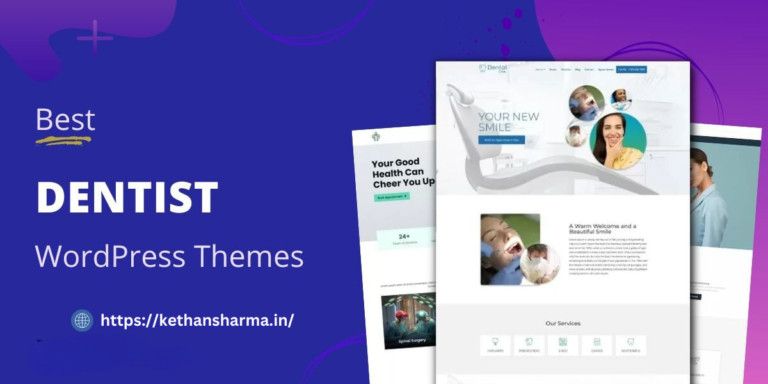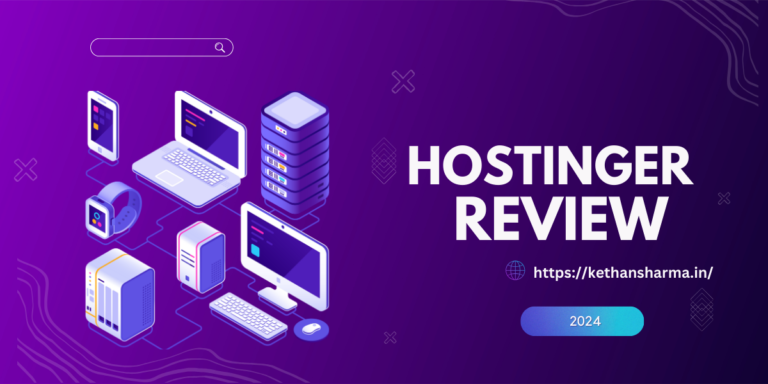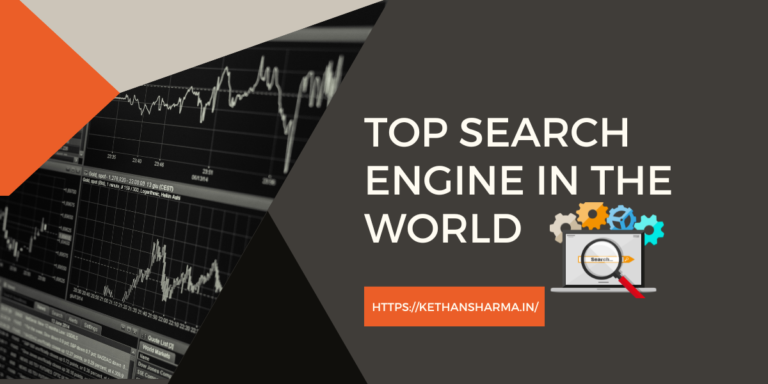AI and Machine Learning in Marketing: Shaping the Future of the Digital Landscape
Artificial intelligence (AI) and machine learning (ML) are revolutionizing the marketing landscape. From personalizing customer experiences to optimizing advertising campaigns, these technologies are enabling businesses to reach new heights of efficiency and success. In a world where data-driven decisions are becoming the norm, understanding AI and ML’s role in marketing is critical for any business looking to stay competitive.
In this article, we’ll explore the ins and outs of AI and machine learning in marketing, how they are reshaping the digital landscape, and how businesses can leverage these technologies to improve their marketing strategies. We’ll dive deep into the benefits, challenges, and future trends, giving you a comprehensive understanding of how AI and ML can transform your marketing efforts.
Outline:
- Introduction
- What is AI and Machine Learning in Marketing?
- Why AI and ML are Important for Marketers
- The Role of AI and ML in Marketing
- Personalization at Scale
- Predictive Analytics for Customer Behavior
- Automating Repetitive Tasks
- AI-Powered Marketing Tools
- Chatbots and Virtual Assistants
- AI in Content Creation and Curation
- AI for Email Marketing and Automation
- Machine Learning Algorithms in Marketing
- Supervised Learning and Target Audience Segmentation
- Unsupervised Learning for Market Research
- Reinforcement Learning in Ad Campaigns
- AI-Driven Customer Insights
- Analyzing Customer Sentiment
- Behavioral Targeting
- Predicting Churn and Customer Lifetime Value (CLV)
- Improving Advertising with AI and ML
- AI for Ad Targeting and Bidding Optimization
- Real-time Analytics in Digital Ads
- Ad Personalization with AI
- SEO and Content Optimization through AI
- AI Tools for Keyword Research and Content Creation
- Content Optimization with Machine Learning
- Voice Search Optimization with AI
- The Benefits of AI and ML in Marketing
- Increased Efficiency and Productivity
- Better Decision Making with Data-Driven Insights
- Improved Customer Experience
- Challenges and Limitations of AI in Marketing
- Data Privacy Concerns
- High Initial Costs and Resource Requirements
- Ethical Issues in AI Usage
- Future Trends of AI and ML in Marketing
- Hyper-Personalization with AI
- The Rise of Conversational AI in Marketing
- AI for Augmented Reality (AR) and Virtual Reality (VR) Marketing
- Conclusion
- Summary of AI and ML’s Impact on Marketing
- How to Get Started with AI in Your Marketing Strategy
- FAQs
- How can small businesses use AI in marketing?
- What are the best AI tools for digital marketing?
- Is AI replacing human marketers?
- How does AI improve customer engagement?
- What is the future of AI in marketing?
AI and Machine Learning in Marketing: Shaping the Future of the Digital Landscape
Introduction
The digital marketing world has always been dynamic, with businesses constantly seeking new ways to engage customers and drive growth. The rise of artificial intelligence (AI) and machine learning (ML) is transforming the way businesses think about marketing. But what exactly are AI and ML in the marketing context, and why should marketers care?
AI refers to the development of systems that mimic human intelligence, including problem-solving, learning, and pattern recognition. Machine learning, a subset of AI, involves algorithms that allow systems to learn from data and improve their performance over time without being explicitly programmed.
In marketing, AI and ML help businesses make sense of large data sets, automate tasks, and, most importantly, create personalized and targeted campaigns that resonate with consumers. As we’ll explore in this article, these technologies are essential for any business wanting to stay ahead in the digital landscape.
The Role of AI and ML in Marketing
Personalization at Scale
One of the most significant advantages AI brings to marketing is the ability to offer personalized experiences at scale. Think about how Amazon or Netflix recommends products or shows based on your behavior. That’s AI in action, leveraging data to understand your preferences and create a more personalized experience. Machine learning algorithms analyze customer data, including past purchases, search history, and even social media interactions, to provide relevant recommendations.
Predictive Analytics for Customer Behavior
Marketers have long relied on data to predict consumer behavior, but with AI and ML, this process has become more accurate and efficient. Predictive analytics, powered by AI, helps marketers forecast future behaviors based on past interactions. For instance, businesses can predict when a customer is likely to make a purchase, helping them tailor offers and content accordingly.
Automating Repetitive Tasks
AI is also great for automating repetitive marketing tasks, such as scheduling social media posts, sending emails, or even managing customer service inquiries through chatbots. By automating these tasks, marketers can free up time for more strategic and creative efforts.
AI-Powered Marketing Tools
Chatbots and Virtual Assistants
Chatbots have become an essential tool for marketers looking to improve customer service and engagement. These AI-driven tools can handle a variety of tasks, from answering basic customer inquiries to guiding users through a purchase process. Advanced chatbots, like those used by companies such as Sephora and H&M, are powered by machine learning, allowing them to learn from each interaction and improve over time.
AI in Content Creation and Curation
Creating engaging content is one of the most time-consuming aspects of marketing, but AI tools like GPT-3 are making this process faster and more efficient. AI can help create blog posts, social media content, and even video scripts, freeing up time for marketers to focus on strategy. Additionally, AI-powered content curation tools can sift through vast amounts of information to recommend the most relevant content for a specific audience.
AI for Email Marketing and Automation
Email marketing is another area where AI is making a significant impact. AI-driven tools can analyze customer data to personalize email content, determine the best time to send emails, and even predict which subject lines will drive the highest open rates. This level of automation ensures that email campaigns are more effective and tailored to individual subscribers.
Machine Learning Algorithms in Marketing
Supervised Learning and Target Audience Segmentation
Supervised learning algorithms in machine learning can help businesses understand their audience better. By analyzing labeled data, these algorithms can categorize customers based on different attributes such as age, gender, and interests. This allows marketers to create more targeted and effective campaigns for each segment.
Unsupervised Learning for Market Research
Unsupervised learning algorithms, on the other hand, analyze unlabeled data to identify hidden patterns. This is particularly useful for market research, where businesses can uncover new trends, customer behaviors, and market segments they may not have been aware of.
Reinforcement Learning in Ad Campaigns
Reinforcement learning is a more advanced type of machine learning used in areas like ad bidding and budget optimization. In this approach, algorithms learn by trial and error, continuously improving their strategies based on real-time data. This can lead to more efficient ad campaigns with higher ROI.
AI-Driven Customer Insights
Analyzing Customer Sentiment
Understanding how customers feel about a brand is crucial for marketing success. AI tools can analyze customer sentiment by examining social media posts, reviews, and feedback. Sentiment analysis helps businesses gauge the general mood surrounding their products or services, allowing them to address concerns or capitalize on positive sentiment.
Behavioral Targeting
AI allows marketers to track customer behavior across multiple touchpoints, including website interactions, social media activity, and email engagement. This data is then used to create personalized experiences and offers tailored to each customer’s behavior, increasing the likelihood of conversion.
Predicting Churn and Customer Lifetime Value (CLV)
Predictive analytics models powered by AI can help businesses identify customers who are likely to churn (leave) and those with high customer lifetime value (CLV). This enables marketers to take proactive steps, such as offering exclusive deals to at-risk customers or increasing engagement with high-value ones.
Improving Advertising with AI and ML
AI for Ad Targeting and Bidding Optimization
One of the most immediate applications of AI in advertising is in ad targeting and bidding. AI algorithms can analyze huge amounts of data in real-time to determine which ads to show to which users, ensuring that businesses get the best value for their advertising dollars. Google and Facebook use AI to help advertisers with bidding strategies, maximizing the efficiency of their ad spend.
Real-Time Analytics in Digital Ads
AI-powered tools can provide real-time insights into the performance of digital ads, allowing marketers to make quick adjustments to improve their campaigns. Whether it’s tweaking ad copy or adjusting targeting parameters, AI ensures that campaigns are always optimized for success.
Ad Personalization with AI
AI takes personalization to a new level in advertising. By analyzing user data, AI can create highly personalized ads that resonate with individual customers, increasing the chances of engagement. This could be as simple as changing the text of an ad based on the user’s location or creating dynamic ads that adapt to a user’s interests.
SEO and Content Optimization through AI
AI Tools for Keyword Research and Content Creation
AI tools like SurferSEO and SEMrush have made SEO more data-driven than ever. These tools analyze search engine algorithms and user behavior to help marketers identify the most effective keywords and topics for their content. Additionally, AI can assist in content creation by providing suggestions for structure, tone, and optimization.
Content Optimization with Machine Learning
Machine learning algorithms can analyze how users interact with content, providing insights into what works and what doesn’t. By analyzing metrics such as time on page, bounce rate, and conversion rate, these algorithms help marketers fine-tune their content to meet audience expectations and improve SEO rankings.
Voice Search Optimization with AI
With the rise of voice search, optimizing for voice queries has become a priority for marketers. AI tools can help businesses understand how people use voice assistants like Alexa or Siri, allowing them to adjust their content strategy to cater to these types of searches.
The Benefits of AI and ML in Marketing
Increased Efficiency and Productivity
AI automates many time-consuming tasks, allowing marketers to focus on strategy rather than execution. Whether it’s automating email campaigns or analyzing customer data, AI frees up valuable time and resources.
Better Decision Making with Data-Driven Insights
AI and ML provide marketers with a wealth of data, enabling more informed decision-making. Whether it’s predicting customer behavior or optimizing an ad campaign, data-driven insights ensure that marketing efforts are both effective and efficient.
Improved Customer Experience
At the heart of AI in marketing is the goal of creating better customer experiences. From personalized content to responsive customer service chatbots, AI helps businesses meet customer expectations and improve satisfaction.
Challenges and Limitations of AI in Marketing
Data Privacy Concerns
One of the major challenges facing AI in marketing is data privacy. Consumers are becoming more aware of how their data is being used, and businesses must ensure they are compliant with regulations like GDPR and CCPA.
High Initial Costs and Resource Requirements
Implementing AI solutions can be expensive, particularly for small businesses. The initial costs of setting up AI infrastructure, coupled with the need for skilled professionals to manage these systems, can be a significant barrier.
Ethical Issues in AI Usage
There are also ethical concerns surrounding the use of AI in marketing, particularly in areas like predictive analytics and behavioral targeting. Businesses must ensure that they are using AI responsibly and transparently to avoid damaging their reputation.
Future Trends of AI and ML in Marketing
Hyper-Personalization with AI
As AI continues to evolve, we can expect even more advanced levels of personalization. Hyper-personalization will allow businesses to create tailored experiences for each individual customer, driving engagement and loyalty.
The Rise of Conversational AI in Marketing
Conversational AI, including chatbots and voice assistants, will play a larger role in marketing. As these tools become more sophisticated, they will be able to handle more complex tasks and provide a more seamless customer experience.
AI for Augmented Reality (AR) and Virtual Reality (VR) Marketing
AI is also set to revolutionize AR and VR marketing. AI-powered systems can help create immersive, personalized experiences that engage customers in entirely new ways, whether through virtual product demos or interactive ads.
Conclusion
AI and machine learning are reshaping the marketing landscape, offering businesses unprecedented opportunities for personalization, automation, and data-driven decision-making. While there are challenges to overcome, the benefits far outweigh the risks, making AI an essential tool for any marketer looking to succeed in the digital age.
To get started with AI in your marketing strategy, begin by identifying areas where automation and data analysis can have the most impact, such as customer segmentation, ad targeting, and content optimization. With the right approach, AI can take your marketing efforts to the next level.






